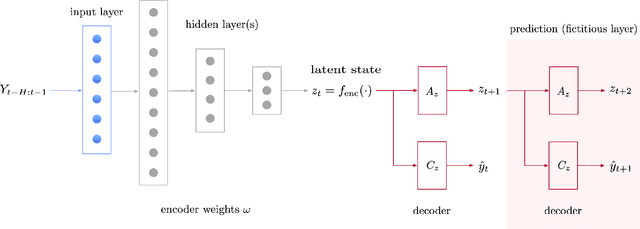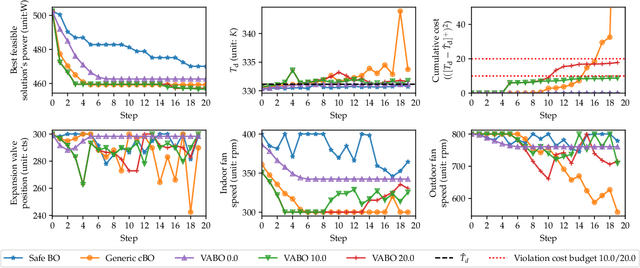Christopher R. Laughman
Meta-Learning for Physically-Constrained Neural System Identification
Jan 10, 2025



Abstract:We present a gradient-based meta-learning framework for rapid adaptation of neural state-space models (NSSMs) for black-box system identification. When applicable, we also incorporate domain-specific physical constraints to improve the accuracy of the NSSM. The major benefit of our approach is that instead of relying solely on data from a single target system, our framework utilizes data from a diverse set of source systems, enabling learning from limited target data, as well as with few online training iterations. Through benchmark examples, we demonstrate the potential of our approach, study the effect of fine-tuning subnetworks rather than full fine-tuning, and report real-world case studies to illustrate the practical application and generalizability of the approach to practical problems with physical-constraints. Specifically, we show that the meta-learned models result in improved downstream performance in model-based state estimation in indoor localization and energy systems.
Violation-Aware Contextual Bayesian Optimization for Controller Performance Optimization with Unmodeled Constraints
Jan 28, 2023



Abstract:We study the problem of performance optimization of closed-loop control systems with unmodeled dynamics. Bayesian optimization (BO) has been demonstrated to be effective for improving closed-loop performance by automatically tuning controller gains or reference setpoints in a model-free manner. However, BO methods have rarely been tested on dynamical systems with unmodeled constraints and time-varying ambient conditions. In this paper, we propose a violation-aware contextual BO algorithm (VACBO) that optimizes closed-loop performance while simultaneously learning constraint-feasible solutions under time-varying ambient conditions. Unlike classical constrained BO methods which allow unlimited constraint violations, or 'safe' BO algorithms that are conservative and try to operate with near-zero violations, we allow budgeted constraint violations to improve constraint learning and accelerate optimization. We demonstrate the effectiveness of our proposed VACBO method for energy minimization of industrial vapor compression systems under time-varying ambient temperature and humidity.
Meta-Learning of Neural State-Space Models Using Data From Similar Systems
Nov 14, 2022



Abstract:Deep neural state-space models (SSMs) provide a powerful tool for modeling dynamical systems solely using operational data. Typically, neural SSMs are trained using data collected from the actual system under consideration, despite the likely existence of operational data from similar systems which have previously been deployed in the field. In this paper, we propose the use of model-agnostic meta-learning (MAML) for constructing deep encoder network-based SSMs, by leveraging a combination of archived data from similar systems (used to meta-train offline) and limited data from the actual system (used for rapid online adaptation). We demonstrate using a numerical example that meta-learning can result in more accurate neural SSM models than supervised- or transfer-learning, despite few adaptation steps and limited online data. Additionally, we show that by carefully partitioning and adapting the encoder layers while fixing the state-transition operator, we can achieve comparable performance to MAML while reducing online adaptation complexity.
VABO: Violation-Aware Bayesian Optimization for Closed-Loop Control Performance Optimization with Unmodeled Constraints
Oct 14, 2021

Abstract:We study the problem of performance optimization of closed-loop control systems with unmodeled dynamics. Bayesian optimization (BO) has been demonstrated effective for improving closed-loop performance by automatically tuning controller gains or reference setpoints in a model-free manner. However, BO methods have rarely been tested on dynamical systems with unmodeled constraints. In this paper, we propose a violation-aware BO algorithm (VABO) that optimizes closed-loop performance while simultaneously learning constraint-feasible solutions. Unlike classical constrained BO methods which allow an unlimited constraint violations, or safe BO algorithms that are conservative and try to operate with near-zero violations, we allow budgeted constraint violations to improve constraint learning and accelerate optimization. We demonstrate the effectiveness of our proposed VABO method for energy minimization of industrial vapor compression systems.
 Add to Chrome
Add to Chrome Add to Firefox
Add to Firefox Add to Edge
Add to Edge